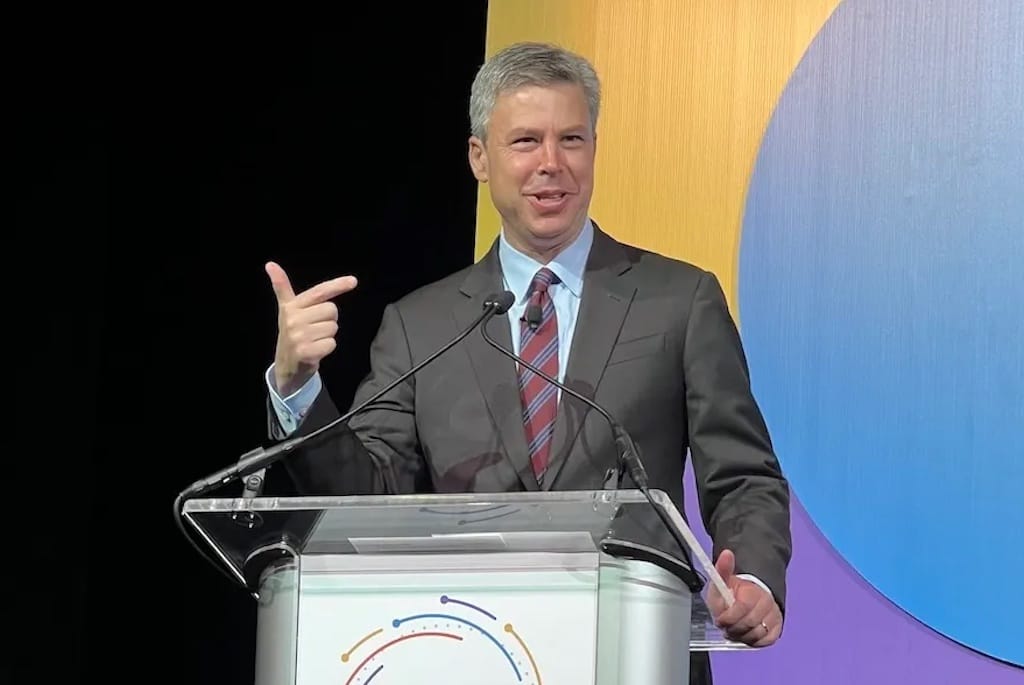Running USDA’s Rural Utilities Service Isn’t Andy Berke’s First Act in Broadband
Almost all of Berke’s work seems to be about making a difference for higher-quality broadband.
David B. McGarry

The time to close the digital divide is now, says Andy Berke. And, as the newly appointed administrator of the U.S. Department of Agriculture’s Rural Utilities Service, he’s poised to do so. Berke is unique in that he’s served in local, state, and federal government. Multiple entities, even!
To fans of connectivity, almost all of Berke’s work seems to be about making a difference for higher-quality broadband. Most notably, he was the two-term mayor of Chattanooga, Tennessee, and helped build the Gigabit City’s brand for top-notch and top-speed internet.
You won’t want to miss the Ask Me Anything! with him hosted by Jase Wilson on Friday, November 11, 2022, at 2:30 p.m. ET. Administrator Berke will share his thoughts on the future of RUS, rural broadband, federal funding efforts, and much more. And in honor of Veterans Day, he and Wilson will discuss the importance of broadband to those who have served our country.
In his Stanford element
A native Chattanoogan, Berke left his hometown to attend Stanford University as an undergraduate. He thrived in the community of Stanford, according to a retrospective in the Stanford Daily. He tutored kids in the low-income area of East Palo Alto from his first week on campus. He worked in student government, ran the speakers’ bureau, and had such a broad involvement on campus that the newspaper’s editors invited him to become opinions editor. He even met and married his wife while at Stanford.
Berke went on to earn his law degree from the University of Chicago Law School. After returning to his native Tennessee, he joined his family’s law firm, Berke, Berke, and Berke.
Building the Gigabit City in his hometown
In 2007 and 2008, Berke won back-to-back elections for the Tennessee State Senate. He gained a reputation as an energetic senator, garnering recognition from such organizations as the State Legislative Leaders Foundation, the Tennessee Education Association, and Lipscomb University’s Institute for Sustainable Practice.
Berke next set his sights on Chattanooga’s mayoralty. He was elected in 2013 with 72 percent of the vote. His first move was to reorganize the city government, cutting waste and saving tax dollars. He also oversaw drops in violent crime and unemployment.
Then-Mayor Berke made headlines in the broadband industry for his work promoting municipal broadband and digital equity. The EPB in Chattanooga, formerly known as the Electric Power Board, had in 2010 made Chattanooga a Gigabit city – the nation’s first – with a fiber-to-the-home deployment initiated on the basis of “smart grid” deployments for electric infrastructure. By 2015, available speeds reached 10 Gigabits per second.
Berke used a “Tech Goes Home” program to provide digital-literacy training to students and seniors and helped them purchase devices. Chattanooga also ensured that in-need families had access to high-quality, low-cost internet service.
“The system has proven an unqualified success,” Berke wrote in a 2021 article for the American Prospect, co-authored with Jonathan Gruber. “Over half of the homes and businesses in the service area are signed up with ‘The Gig.’”
Mr. Berke goes to Washington
In January 2022, after his second term as mayor, Berke became a special representative for broadband at the National Telecommunications and Information Agency. Then in October, President Joe Biden tapped Berke to head RUS.
Administrator Berke’s goal is to show communities that getting connected is a truly feasible and beneficial option. “Chattanooga saw tremendous economic benefits and quality-of-life benefits from our broadband service,” he said in a brief interview. “It’s not just about the connection, it’s about what the infrastructure does for you as a community.”
What’s more, Berke brings an understanding of what it’s like to implement, operate, and get community buy-in for networks, a trait uncommon in much of Washington. With his experience at the NTIA, Berke said he believes he will be better able to navigate the complexities of the federal government’s multiagency broadband-funding schemes.
Extensive governmental experience with broadband
In the end, Berke said every federal agency is working together towards the same goal of getting broadband to the Americans who need. But unlike the NTIA, which is still planning for the rollout of its flagship Broadband Equity, Access, and Deployment program, the RUS is ready to “connect people today,” Berke argued.
“We need to ensure that there’s confidence, reliability, and trust in what we’re doing so that communities can use this infrastructure to empower rural Americans to live a better life,” Berke said.
Come armed with questions for the upcoming Ask Me Anything! With Andy Berke on Friday, November 11, 2022, at 2:30 p.m. ET. With Berke poised to be a major player in shaping our nation’s broadband policy going forward, and you won’t want to miss his answers and insights.
This piece was originally posted on Broadband.money on November 9, 2022









Member discussion